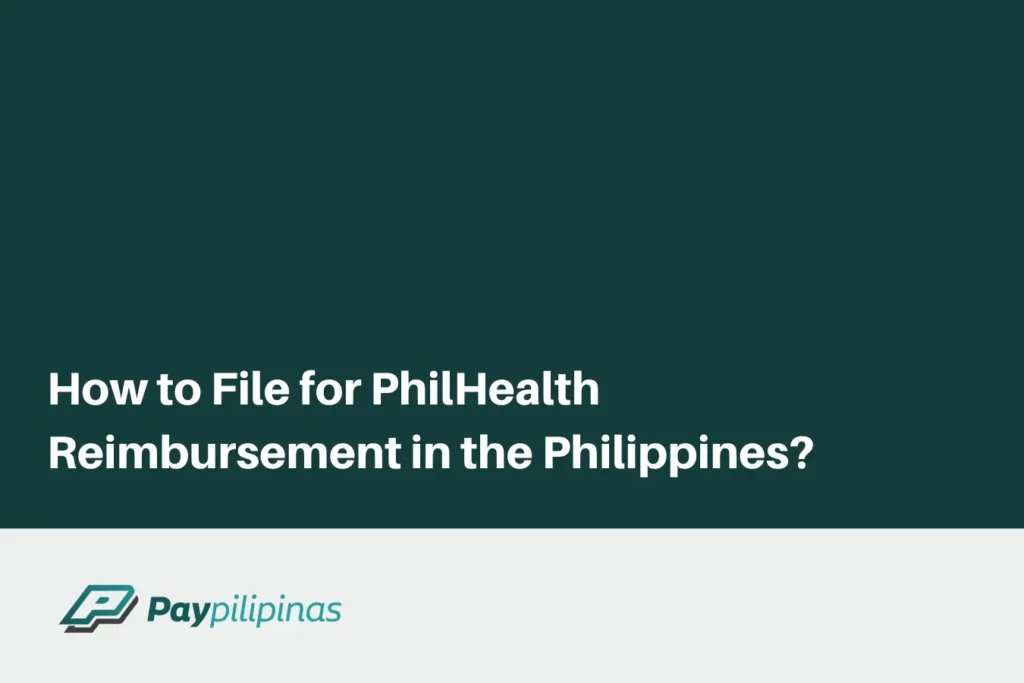How can patients file for a PhilHealth reimbursement?

Navigating the complex world of healthcare expenses can be a daunting task. Thankfully, organizations like the Philippine Health Insurance Corporation (PhilHealth) are dedicated to helping Filipinos access affordable medical care.
PhilHealth provides a crucial safety net for Filipinos, offering financial assistance for various healthcare services.
If you’ve incurred medical expenses and are wondering how to file for reimbursement from PhilHealth, you’re in the right place. This comprehensive guide will walk you through the step-by-step process, ensuring you can make the most of your PhilHealth benefits while alleviating the financial burden that often accompanies healthcare expenditures. Whether you’re a first-time filer or looking to refresh your knowledge, this article will provide you with the information you need to successfully navigate the reimbursement process and maximize the benefits offered by PhilHealth.
When can I file for PhilHealth reimbursement?
You can file for reimbursement from PhilHealth in the following cases:
- When you have paid for your medical expenses out of your own pocket and are eligible for PhilHealth benefits.
- When you have been charged with legal impositions of payment of fines and/or other financial penalties through deduction.
- When you have unclaimed refunds.
To file for reimbursement, you need to fill out the PhilHealth Claim Form 1 (CF1) and submit it along with the required supporting documents to the PhilHealth office or accredited hospital within 60 calendar days from the date of discharge.
The documents needed include a copy of the Member Data Record or PhilHealth Benefit Eligibility Form (PBEF) and duly accomplished PhilHealth Claim Form 1.
It is important to note that for reimbursement of claims for benefits availed abroad, Claim Form 1 and other supporting documents should be filed within one hundred eighty (180) days from the date of discharge.
Steps for PhilHealth Reimbursement
Below are the steps to file for a PhilHealth reimbursement:
Gather and accomplish forms.
- Accomplished claim forms.
- Claim Form 1 (CF1) – Downloadable from the PhilHealth website
- Claim Signature Form (CSF) – Downloadable from the PhilHealth website
- Up-to-date member data record (MDR)
- Certificate of Contribution (employed) or Premium Payment Receipt (for self-employed)
- If undeclared dependent: Proof of dependency and an original Original PhilHealth Membership Registration Form (PMRF)
Prepare supporting documents
Prepare the supporting documents such as the official receipts, medical abstract, and other documents required by PhilHealth.
Submit the forms and documents.
Submit the accomplished forms and supporting documents to the PhilHealth office or accredited hospital within 60 calendar days from discharge.
Wait for the claim.
Wait for the PhilHealth office to process the claim. The processing time may vary depending on the completeness of the documents submitted.
It is important to note that for reimbursement of claims for benefits availed abroad, Claim Form 1 and other supporting documents should be filed within one hundred eighty (180) days from the date of discharge.
What is the maximum reimbursement from PhilHealth?
The short answer is that it varies per case. Moreover, the maximum amount that can be reimbursed by PhilHealth depends on the patient’s medical condition. It is important to note that the maximum amount that can be refunded may vary depending on the medical condition and the type of service the patient availed.
For instance, PhilHealth covers hemodialysis sessions to 156 as of 2023 (PhilHealth Circular 2023-000). The reimbursement amount may also depend on the resources used for the patient’s medical condition.
Is there a deadline for PhilHealth reimbursements?
Patients should file for PhilHealth reimbursement within 60 calendar days from their discharge date. PhilHealth requires healthcare providers to file a claim for each patient after providing services, and the reimbursement may then be used to pay for the patient’s hospital bills.
Patients should coordinate with their healthcare providers to ensure their claims are filed promptly and accurately. It is also important to note that the submission period for claims has reverted back to 60 calendar days from a patient’s discharge date after the end of the COVID-19 emergency.
Furthermore, the reimbursement of claims for benefits availed abroad may also vary. Claim Form 1 and other supporting documents should be filed within one hundred eighty (180) days from the date of discharge.
Do I still need to pay hospitals when availing PhilHealth benefits?
Yes, patients availing of PhilHealth benefits do have to pay hospitals. However, the amount they have to pay depends on the total bill and the benefits that they are eligible for.
PhilHealth subsidizes a portion of the hospital bills of patients who are admitted to a hospital for at least 24 hours. It applies as long as the hospital is accredited by PhilHealth. After the application of PhilHealth benefits, the patients must pay the remaining balance of their hospital bills.
In summary, patients availing of PhilHealth benefits must pay hospitals, but the amount they have to pay depends on the total bill and the benefits they are eligible for. Patients must meet certain conditions and submit the required documents to claim their benefits.
Related: